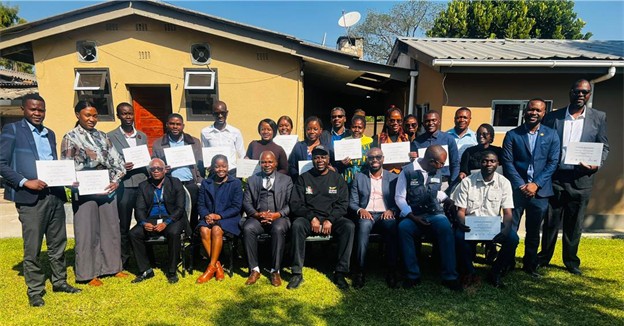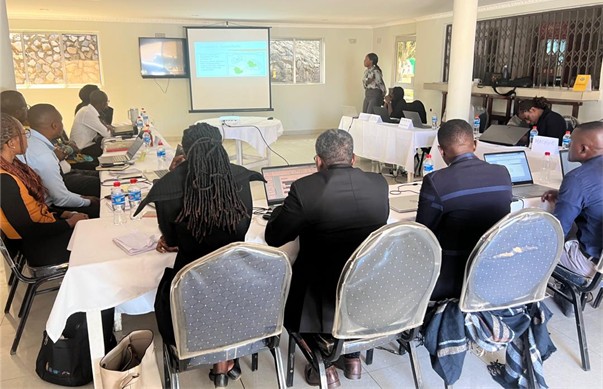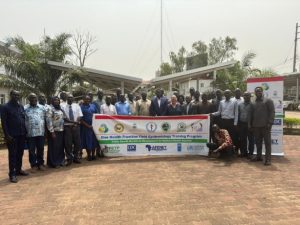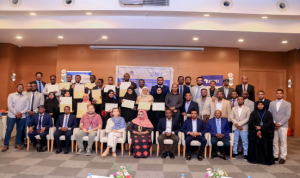Zambia Strengthens Resilient, People-Centered Health Systems through Field Epidemiology Training in Copperbelt Province
-
by
AFENET


Luanshya, Copperbelt Province – Zambia | 13 June 2025
The Zambia National Public Health Institute (ZNPHI), in collaboration with the Ministry of Health (MoH) and the Global Fund, celebrated the graduation of 17 frontline health professionals from the Frontline Field Epidemiology Training Program (FETP) in Copperbelt Province. This event marks a critical step forward in Zambia’s ongoing efforts to strengthen local capacity for early detection and timely response to public health threats.
Since the inception of the FETP in 2015, ZNPHI has successfully trained 27 cohorts, producing 568 skilled frontline health professionals nationwide. The most recent graduation was held during the third and final workshop of Cohort 28 and was attended by key public health leaders, including Professor Roma Chilengi, Director General of ZNPHI; Dr. Elijah Kabelenga, Clinical Care Specialist; Dr. Nyambe Sinyange, Director of Workforce Development at ZNPHI; and Mr. Paul Simujayagombe, Global Fund Project Coordinator.
Delivering the keynote address on behalf of Dr. Charles Mwinuna, Dr. Kabelenga congratulated the graduates and emphasized the critical role they now play as field epidemiologists. He encouraged them to put their newly acquired skills to use, not only in service delivery but also by mentoring peers and contributing to sustained improvements in disease surveillance and outbreak response. “You are now part of a distinguished group of disease detectives,” he said. “Your commitment is vital to strengthening health security in your communities and across Zambia.”
In his remarks, Professor Chilengi noted that the graduation signifies more than the end of a training program—it is a symbol of Zambia’s steadfast commitment to building a resilient, people-centered health system. “By investing in you, we invest in the future,” he said. “You are the eyes, ears, and first line of defense in our public health system. Your impact starts now.”
He further highlighted Copperbelt Province’s strategic importance as a focal point for public health interventions, given its position as a hub for trade, transportation, and migration. Bordering multiple neighboring countries, the region faces an elevated risk of disease transmission. Professor Chilengi underscored the urgent need for a skilled workforce to address these cross-border health security challenges.
Also speaking at the ceremony, Mr. Paul Simujayagombe extended his congratulations to the graduating fellows and acknowledged the Global Fund’s ongoing support to ZNPHI and the Ministry of Health. “The Global Fund has invested significantly in strengthening health systems,” he said, “including surveillance, laboratory diagnostics, pandemic preparedness, infection prevention and control (IPC), water, sanitation and hygiene (WASH), and, critically, workforce development through programs like FETP.”
He added that the Global Fund continues to support both the Frontline and Intermediate tiers of the FETP, with plans underway to extend support to the Advanced tier.
The event culminated in the presentation of certificates, recognizing the graduates’ achievements and commitment to safeguarding public health in Zambia. The graduates of Cohort 28 also presented findings from their field projects, showcasing the practical impact of the training on public health challenges in Luanshya District and beyond.




